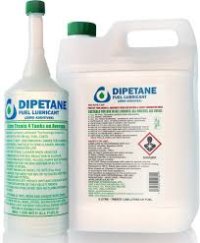Earlier this week I caught one of my work colleagues adding a fuel additive called Dipetane to his 2020 Nissan Navara's fuel.
I was surprised as he is a proper engineer and not someone to throw money away in "snake oil".
His Nissan Navara doesn't get enough long runs and has given its share of hassle with the issues you'd expect with a modern generation Euro6 engine.
He reckoned that his engine was now performing loads less regens since he's being using Dipetane over the last 3 months or so. He also uses the stuff in his old gas oil fuelled boiler and he reckoned it is no longer as smokey and needs less maintenance from problems associated with excess coke.
So, I thought I'd give it a try and bought some from Amazon (Amazon.co.uk) and chucked in the recommended quantity when I filled up.

Obviously too early to say if it does anything for my T6.1, but this afternoon I had my Wallas heater on and I noticed that it was stinking. (It is usually a bit smokey and generally smelly on start up, but this was a new level of stinking!) So I turned up the thermostat to max and left it whilst I took the dog for a 3 hour walk to give it an opportunity to burn off any muck.
When I got back, the exhaust was no longer stinking. I believe that the Wallas heater had a fair bit of a decoke due to the fuel additive.
I turned the heater on again once it has cooled (to make sure it fired up without the stench that I experienced earlier) and it fired up quicker than normal and didn't generate its normal exhaust stench which it has done for the last 3 months.
Time will tell if I stick with using the stuff, but I think that in the long term this may be a new thing that I consider to be with faffing with.
I was surprised as he is a proper engineer and not someone to throw money away in "snake oil".
His Nissan Navara doesn't get enough long runs and has given its share of hassle with the issues you'd expect with a modern generation Euro6 engine.
He reckoned that his engine was now performing loads less regens since he's being using Dipetane over the last 3 months or so. He also uses the stuff in his old gas oil fuelled boiler and he reckoned it is no longer as smokey and needs less maintenance from problems associated with excess coke.
So, I thought I'd give it a try and bought some from Amazon (Amazon.co.uk) and chucked in the recommended quantity when I filled up.

Obviously too early to say if it does anything for my T6.1, but this afternoon I had my Wallas heater on and I noticed that it was stinking. (It is usually a bit smokey and generally smelly on start up, but this was a new level of stinking!) So I turned up the thermostat to max and left it whilst I took the dog for a 3 hour walk to give it an opportunity to burn off any muck.
When I got back, the exhaust was no longer stinking. I believe that the Wallas heater had a fair bit of a decoke due to the fuel additive.
I turned the heater on again once it has cooled (to make sure it fired up without the stench that I experienced earlier) and it fired up quicker than normal and didn't generate its normal exhaust stench which it has done for the last 3 months.
Time will tell if I stick with using the stuff, but I think that in the long term this may be a new thing that I consider to be with faffing with.



